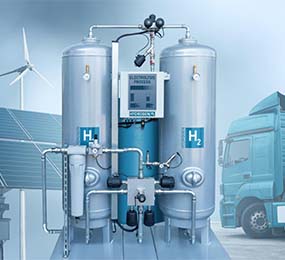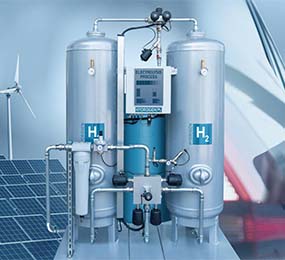Developing Sustainable Aviation Fuels for Europe's Air Transportation Industry
The aviation industry is a major contributor to global carbon emissions, accounting for around 2% of all human-induced greenhouse gas emissions. As the world strives to achieve a more sustainable future, it is crucial for the aviation industry to reduce its carbon footprint. One potential solution is the development of sustainable aviation fuels (SAFs) that can replace fossil fuels in aviation.
What are Sustainable Aviation Fuels?
Sustainable aviation fuels (SAFs) are renewable fuels that can be used to power aircraft. They are made from feedstocks that are sustainable and have a lower carbon footprint compared to fossil fuels. SAFs can be made from a variety of feedstocks, including biomass, waste materials, and agricultural residues. They can be produced using a range of processes, including hydro processing, gasification, and fermentation.
Why Develop Sustainable Aviation Fuels?
The development of sustainable aviation fuels is critical for the aviation industry to achieve its goal of reducing carbon emissions. SAFs can reduce the carbon footprint of aviation by up to 80% compared to traditional jet fuel. Additionally, SAFs can help to reduce the industry's reliance on fossil fuels and increase its resilience to fuel price volatility.
Opportunities for Developing Sustainable Aviation Fuels in Europe
Europe is at the forefront of developing sustainable aviation fuels. The European Union has set a target of achieving net-zero emissions by 2050, and the aviation industry is expected to play a significant role in achieving this goal. The European Commission has launched a strategy for sustainable and smart mobility that includes a focus on promoting the use of sustainable aviation fuels.
One of the key opportunities for developing sustainable aviation fuels in Europe is the availability of feedstocks. Europe has a significant amount of waste materials, agricultural residues, and forestry residues that can be used as feedstocks for SAFs. Additionally, Europe has a well-established biofuels industry that can be leveraged to produce SAFs.
Challenges for Developing Sustainable Aviation Fuels in Europe
Despite the opportunities, there are also significant challenges to developing sustainable aviation fuels in Europe. One of the main challenges is the cost of production. SAFs are currently more expensive to produce than traditional jet fuel, making them less competitive in the market. Additionally, there is a lack of infrastructure for producing, storing, and transporting SAFs, which can limit their availability.
Another challenge is the need for supportive policies and regulations. While the European Union has set targets for reducing carbon emissions, there is a lack of specific policies and regulations to support the development of sustainable aviation fuels. There is also a need for more research and development to improve the efficiency and cost-effectiveness of SAF production.
Collaborative Efforts to Develop Sustainable Aviation Fuels in Europe
To address these challenges, collaborative efforts are needed between the aviation industry, governments, and other stakeholders. The European Commission has launched a public-private partnership called the Clean Sky 2 Joint Undertaking to support the development of sustainable aviation fuels. The partnership aims to bring together stakeholders from across the aviation industry to develop new technologies and processes for producing SAFs.
There are also several initiatives led by airlines and airports to promote the use of sustainable aviation fuels. For example, KLM has launched a program to use SAFs on all of its flights departing from Amsterdam, while Heathrow Airport has committed to using SAFs for 10% of its fuel by 2030.
Developing sustainable aviation fuels is critical for the aviation industry to reduce its carbon footprint and achieve a more sustainable future. While there are significant challenges to developing sustainable aviation fuels in Europe, there are also opportunities and collaborative efforts to overcome these challenges. By working together, the aviation industry, governments, and other stakeholders can accelerate the development and adoption of sustainable aviation
Visit our website to know more: https://www.leadventgrp.com/events/future-fuels-europe/details
For more information and group participation, contact us: [email protected]
Leadvent Group - Industry Leading Events for Business Leaders!
















